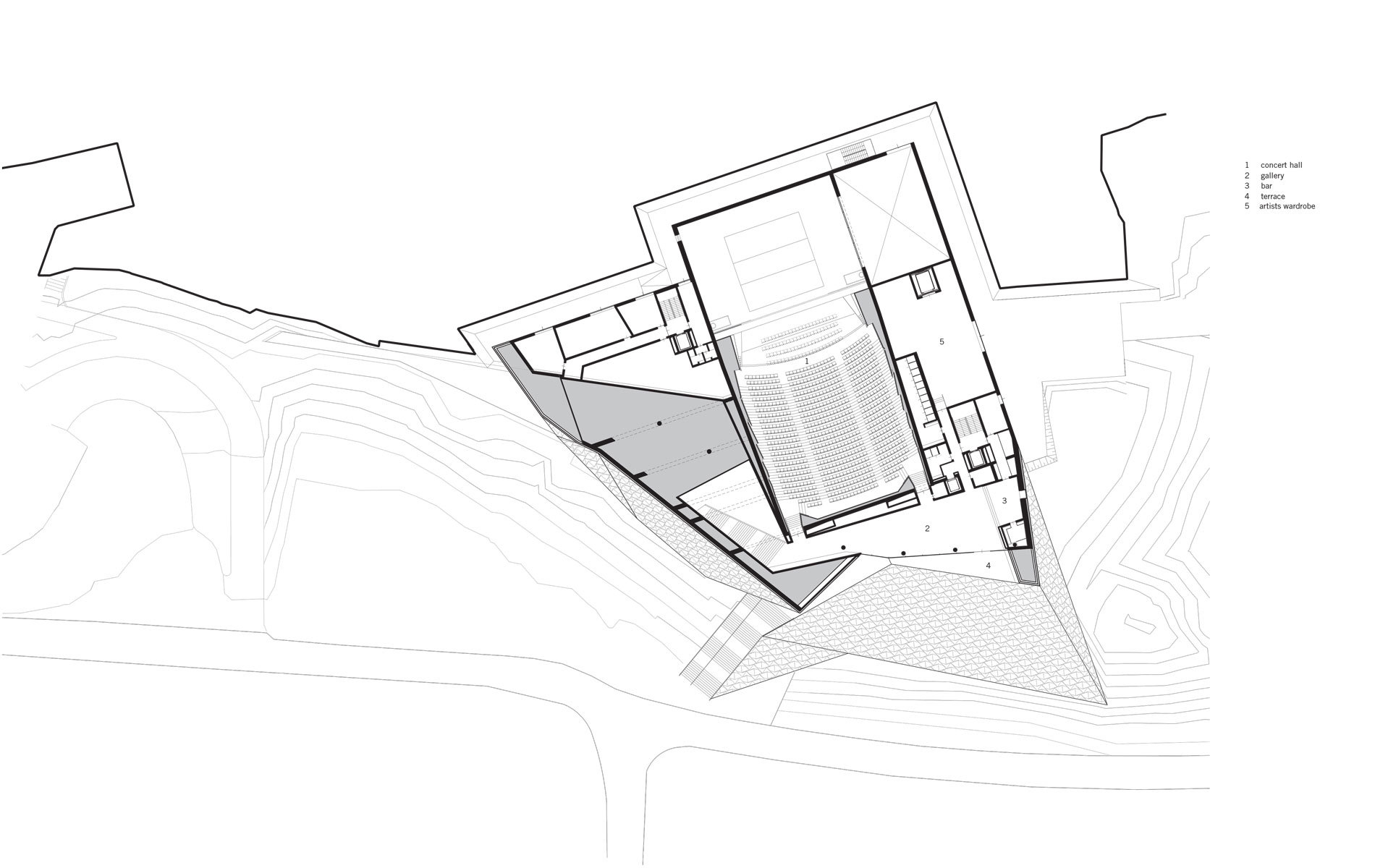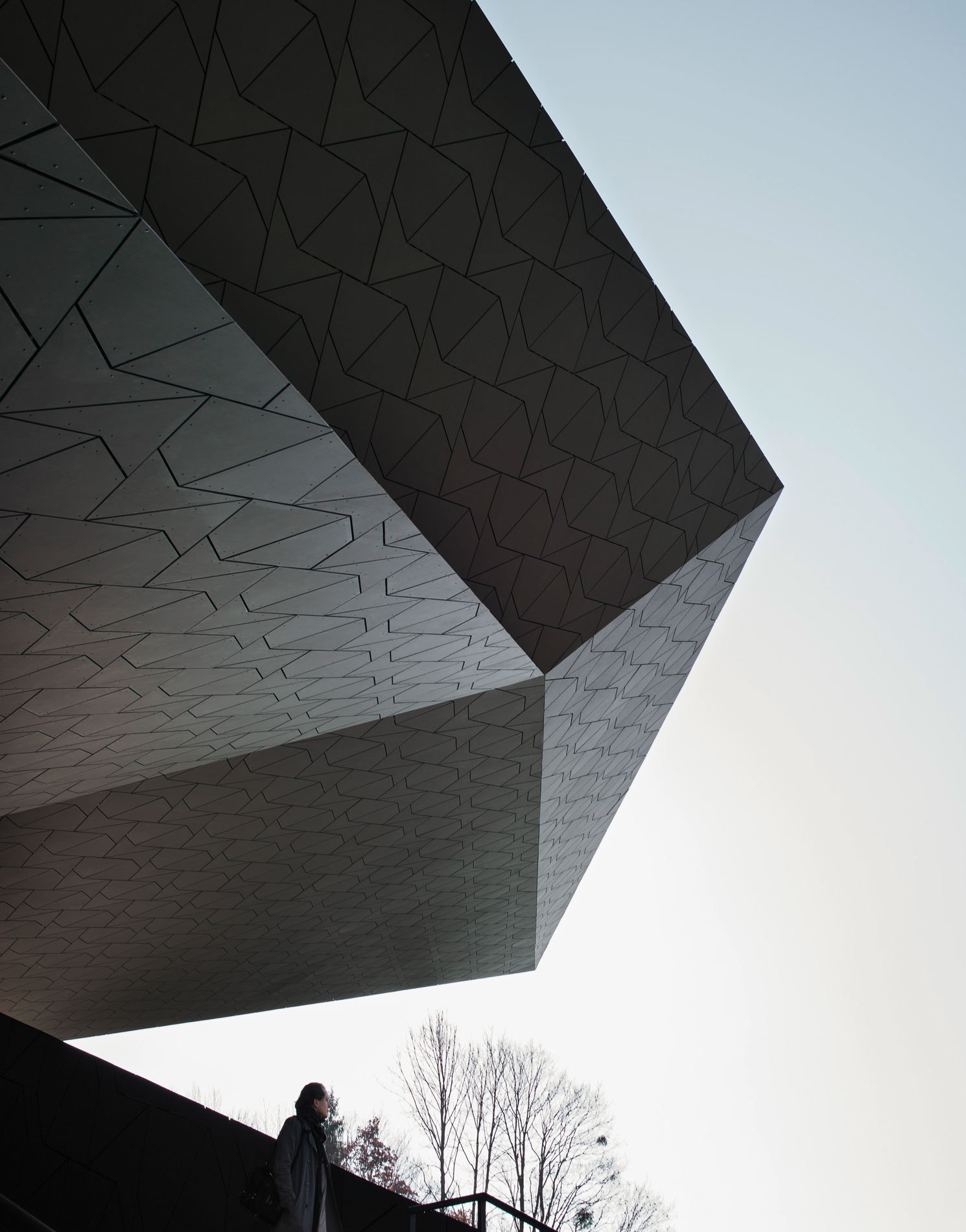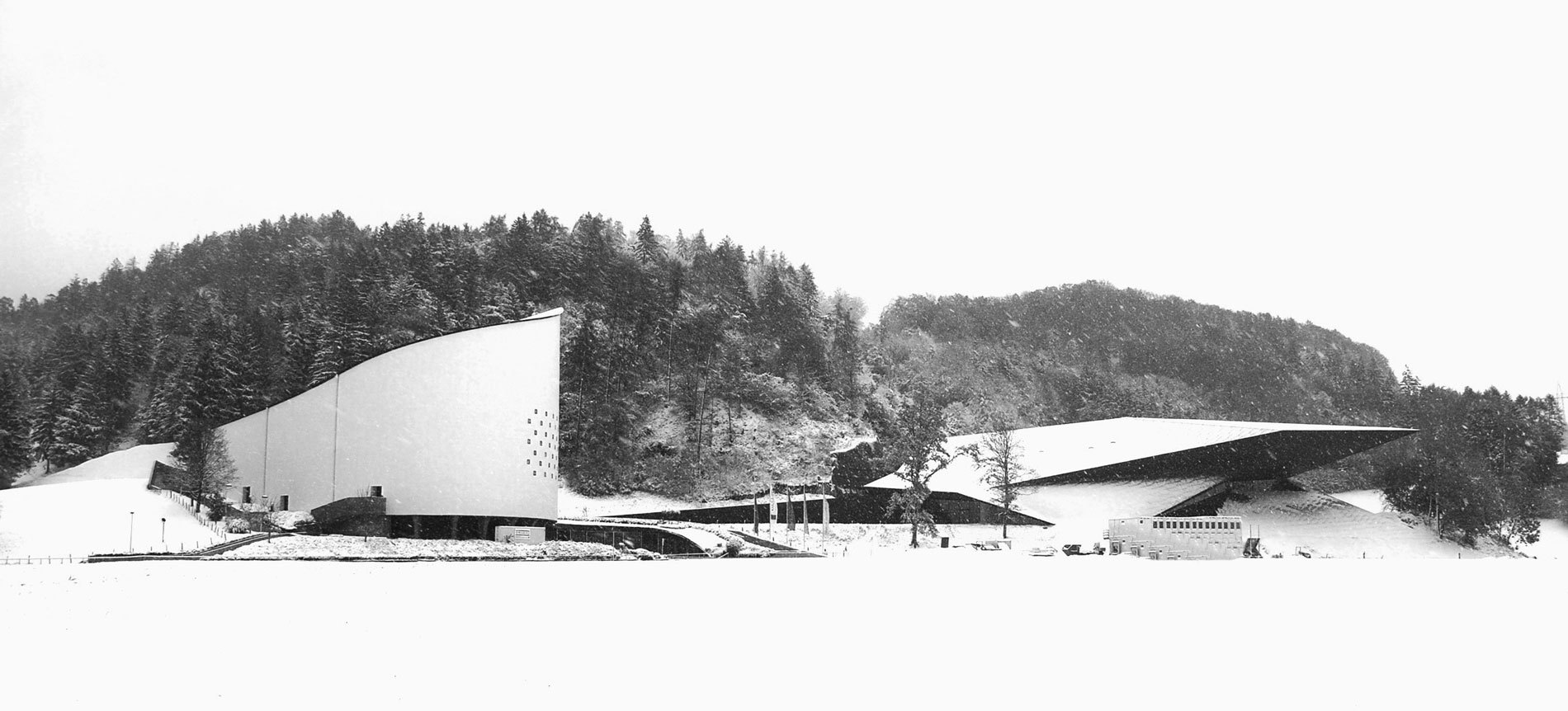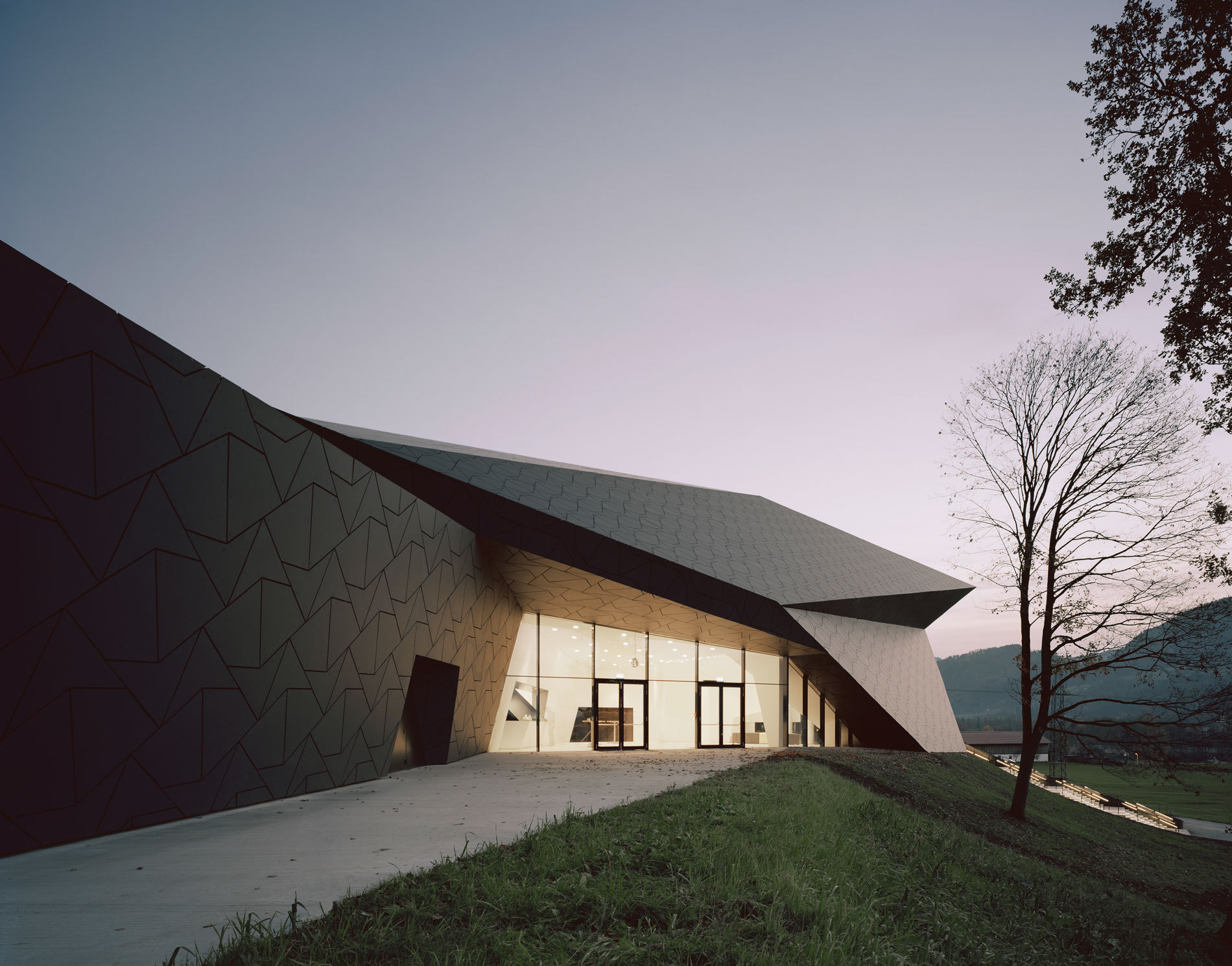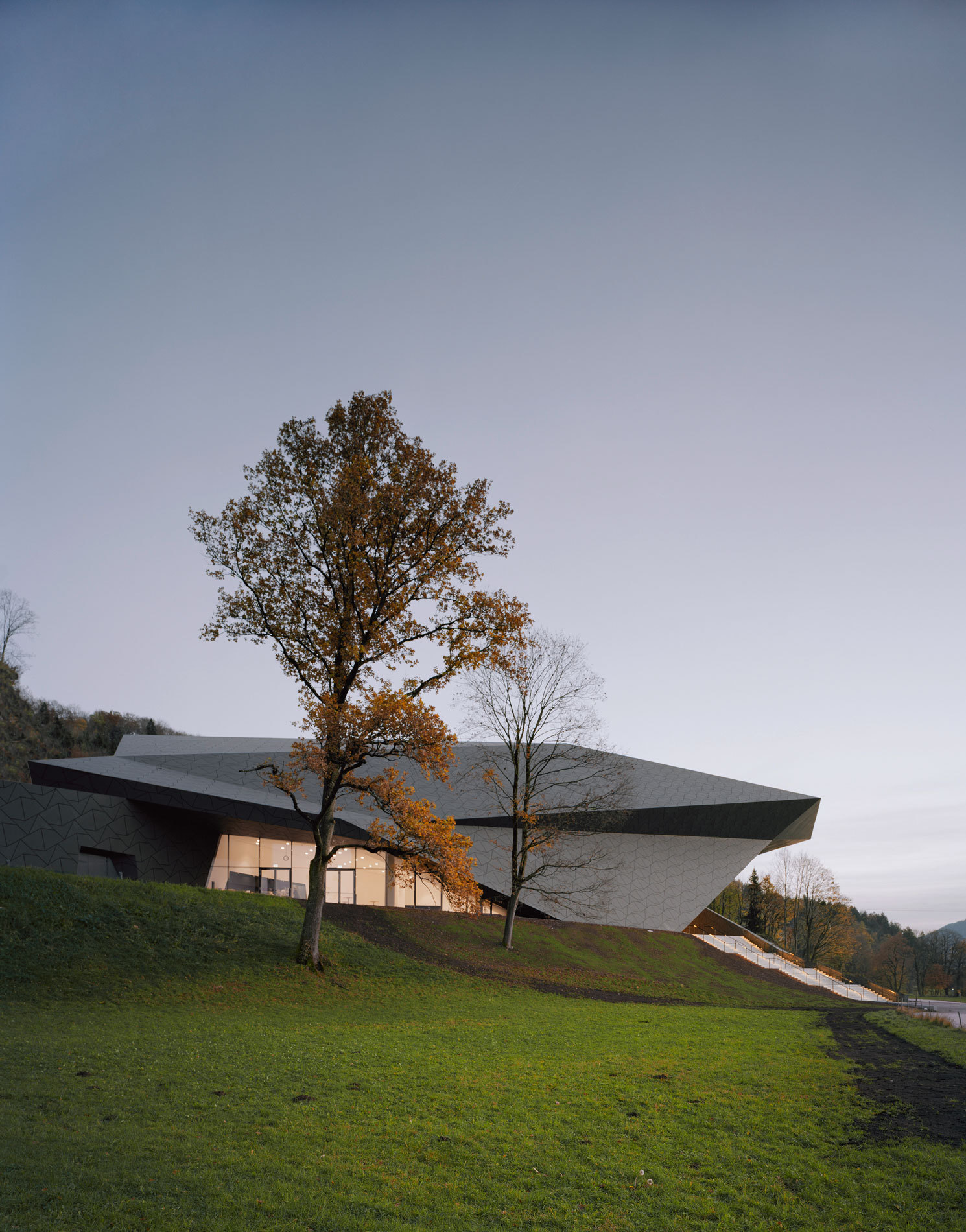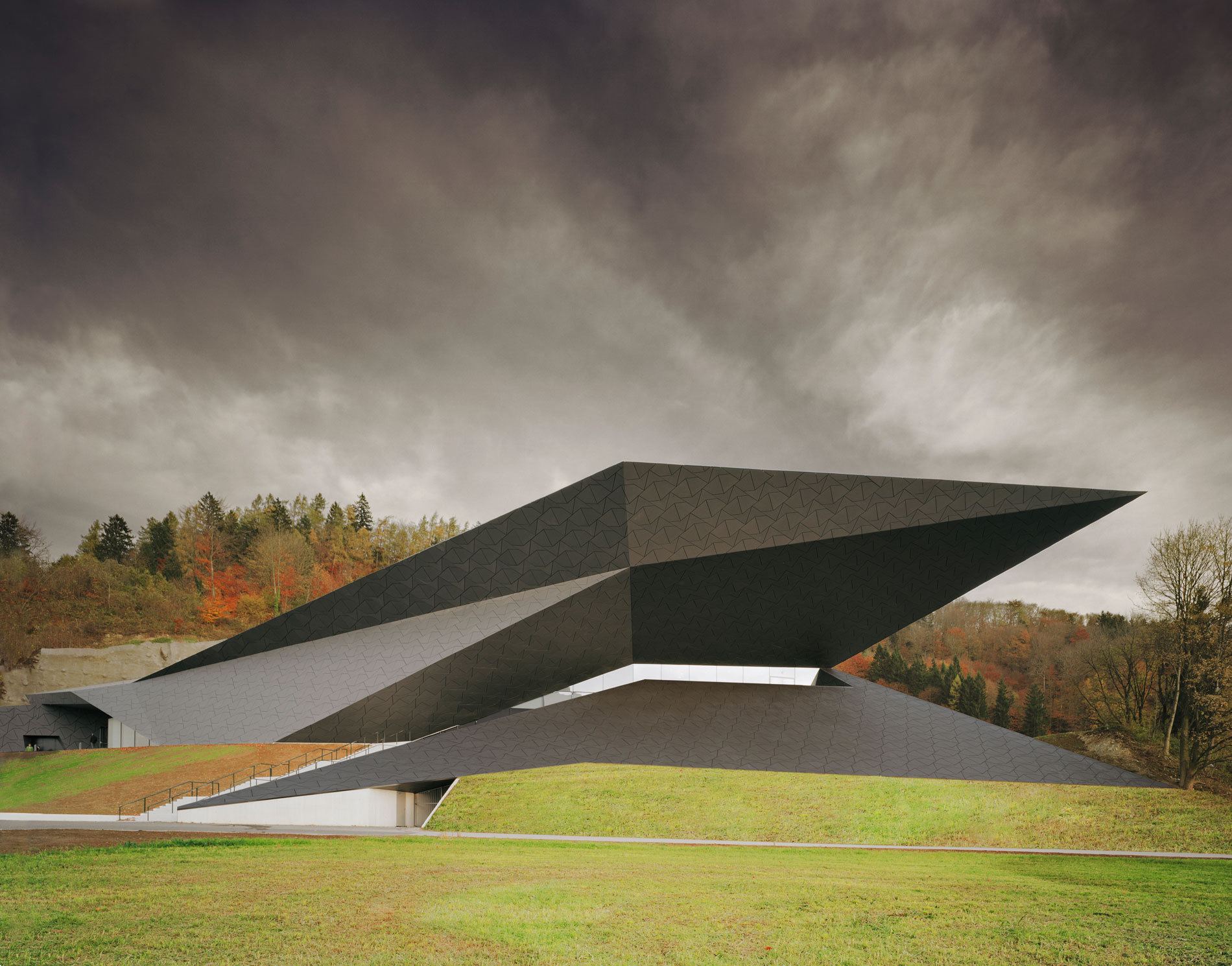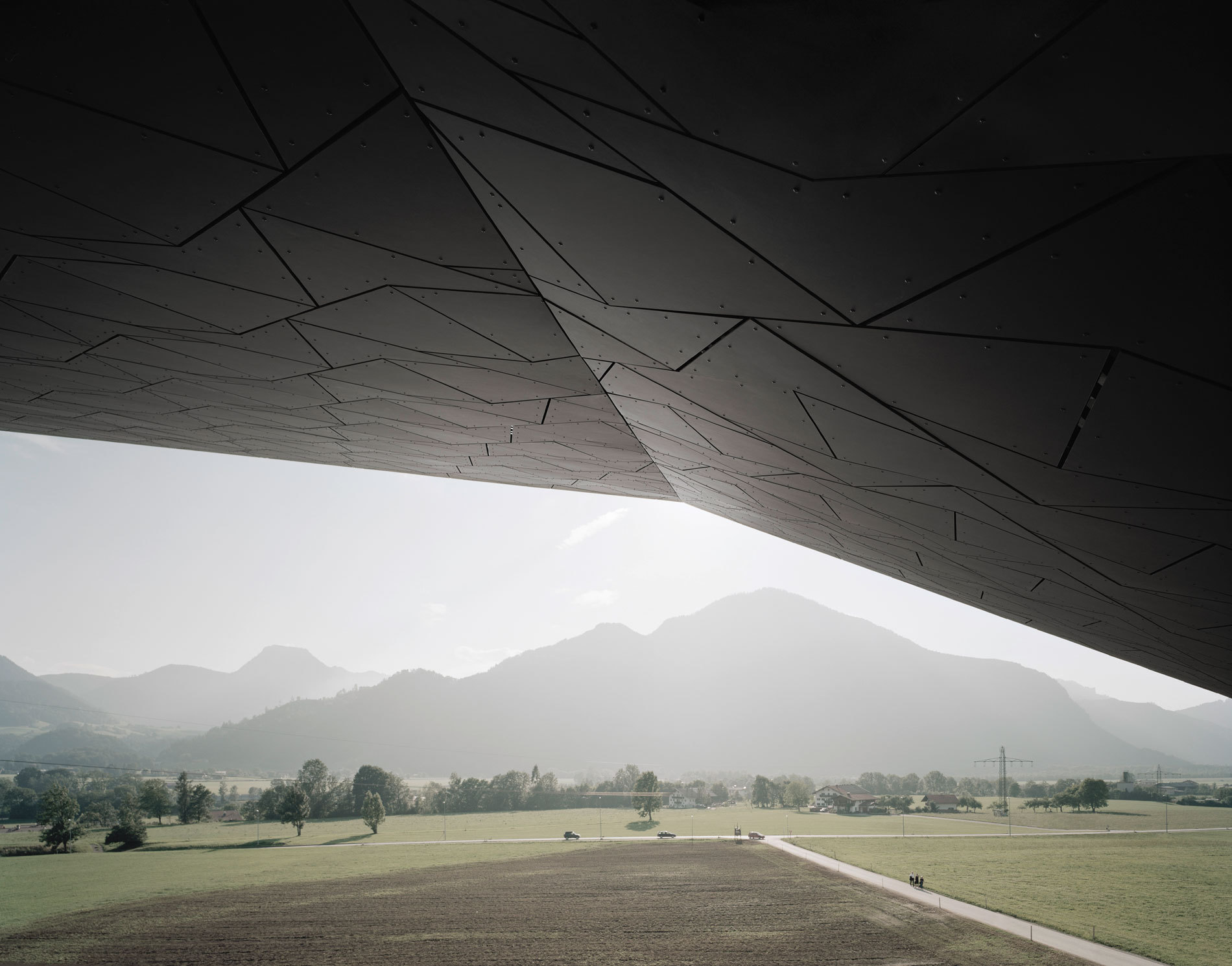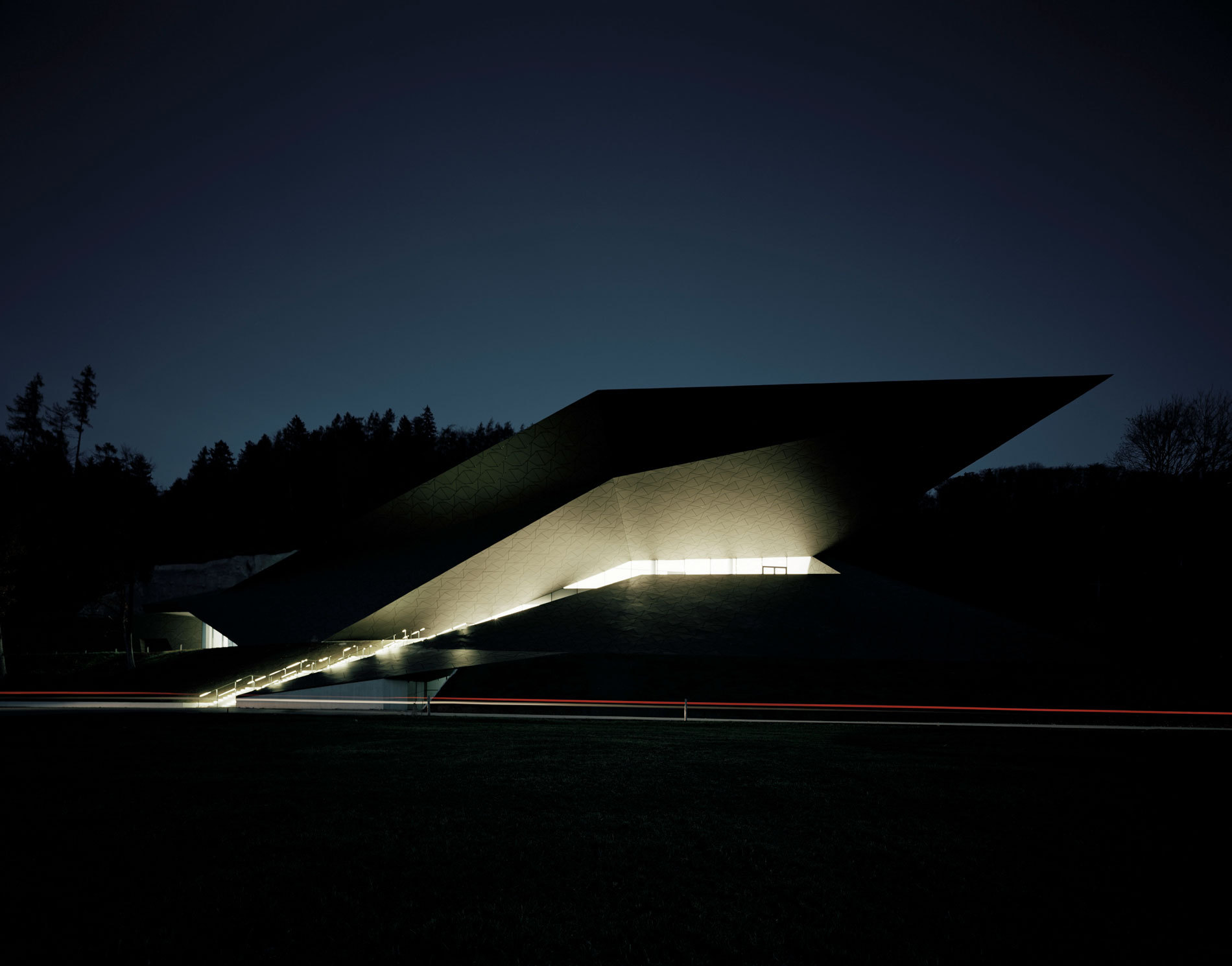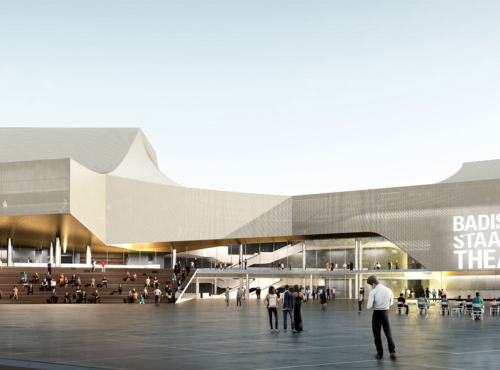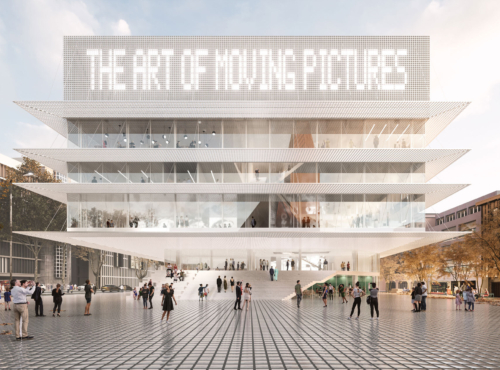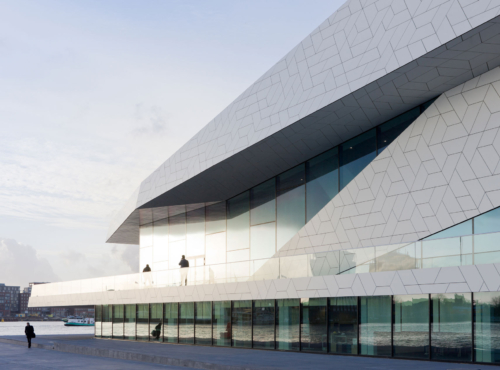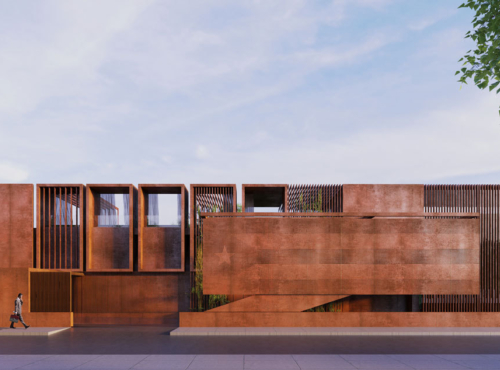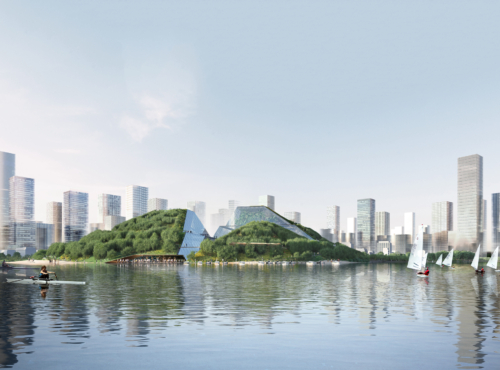Austria
- Cultural
- Built
The festival hall’s geometry develops from the surrounding topography placing the building and the already existing festival hall in juxtaposition. The orientation relates to the existing landscape, the dynamic gesture of the historical counterpart, as well as the background of rock formations.
The topographic imprinting in the landscape continues inside the building where two central parameters direct the architectural approach: the interplay between the building’s interior and the surrounding nature as well as a lading concert hall of international repute. Flowing visual and functional spatial references define the design method:
Spaces of different zoning and configurations implement the focus on communication and peace, dynamics and concentration. Architectural conditions in the building’s interior are devolved into a subtle control of the motion sequences through their sensual perception. The access staircase is integrated into the terrain’s topography and leads visitors into the building’s interior.
The foyer allows a wide range of impressions of the surrounding natural environment as well as to the existing summer festival hall. In the opposite direction, a staircase leads to the gallery on the level above where the relationship between interior and exterior relations is once again impressively experienced by the extensively glass-fronted western façade. Secondary functions of the building are also located at the upper level. Paths and spatial layout are designed both functionally as well as atmospherically:
vast communication zones, narrowing and widening circulation areas and varying ceiling heights translate the tectonic building geometry in a sensually comprehensible space. Coherently, the approach to the concert hall is emphasised by the gentle rise of the entry level.
The concert hall, which is situated at the centre of the building like a shell and is anchored to the rock at the back, is connected to the foyer via two accesses on each level. The passage from the foyer into the concert hall is accompanied by a spatial and atmospheric transformation: Dynamics, variability and asymmetry of the foyer give way to static peace and orthogonality.
Address
Muehlgraben 56
A- 6343 Erl, Tyrol
Competition
09/2007 [1st prize]
Start of planning
2008
Start of construction
11/2010
Completion
08/2012
Total floor area
8.800 m²
Net floor area foyer
1.250 m²
Auditorium area approx.
580 m² [732 seats + 130 temporary seats]
Orchestra pit approx.
160 m²
Stage approx
450 m²
Gross floor area
10.000 m²
Volume
60.000 m³
Site area
9.700 m²
Built-up area
4.500 m²
Building dimensions
90m x 71m x 22m [longest/highest points, including cantilevers]
Budget
€ 36 Million
Project Manager
Sebastian Brunke, Joerg Rasmussen
Team
Philip Beckmann, Eva Schrade, Torsten Sauer, Simon Takasaki, Anja Vogl
CONSULTANTS
Structural engineering
FCP Fritsch, Chiari & Partner ZT GmbH, Vienna
Building services engineering
Zentraplan GmbH
Acoustics
Quiring Consultants
Light planning
Haighlight, Innsbruck
Stage planning
e.f.f.e.c.t.s, technisches
Stage machinery
PKE Electronics AG
Building physics
Dr.Pfeiler GmbH, Graz
Geotechnics
PGI, GmbH, Kufstein
Measurement
Jankowitsch Harald
Fire prevention
Norbert Rabl ZT GmbH
BSB Ing. Christoph
Wegscheider, Mils
Planning & contruction KG
Ing.Werner Hann
Client
Winterfestspielhaus ERL Errichtungss- und Betriebsgesellschaft GmbH
Executional planning / Representative of the Awarding Body
MHM architects, Vienna
General contractor
STRABAG AG, Walchsee
Photographer
Brigida González
Peter Kitzbichler
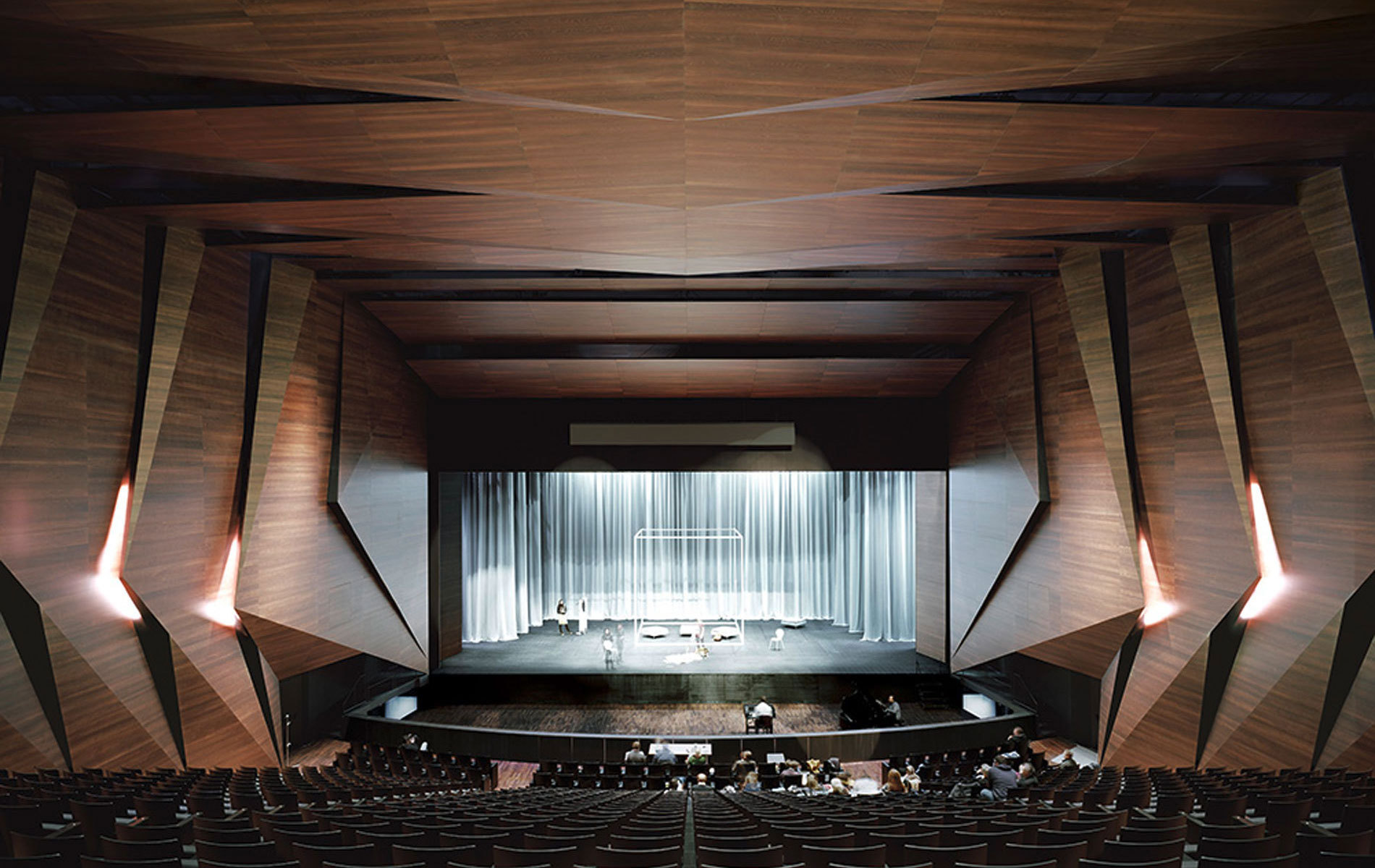
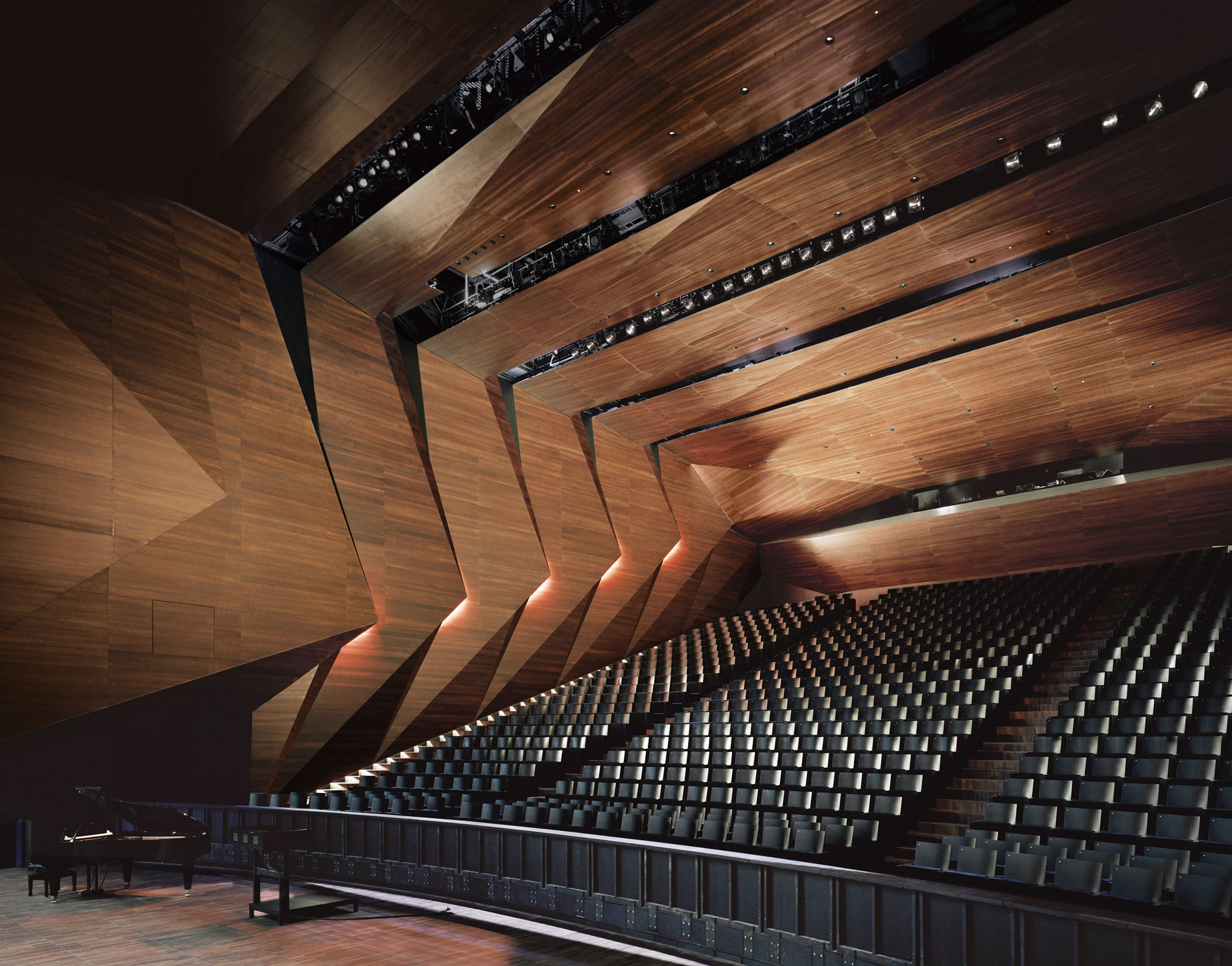
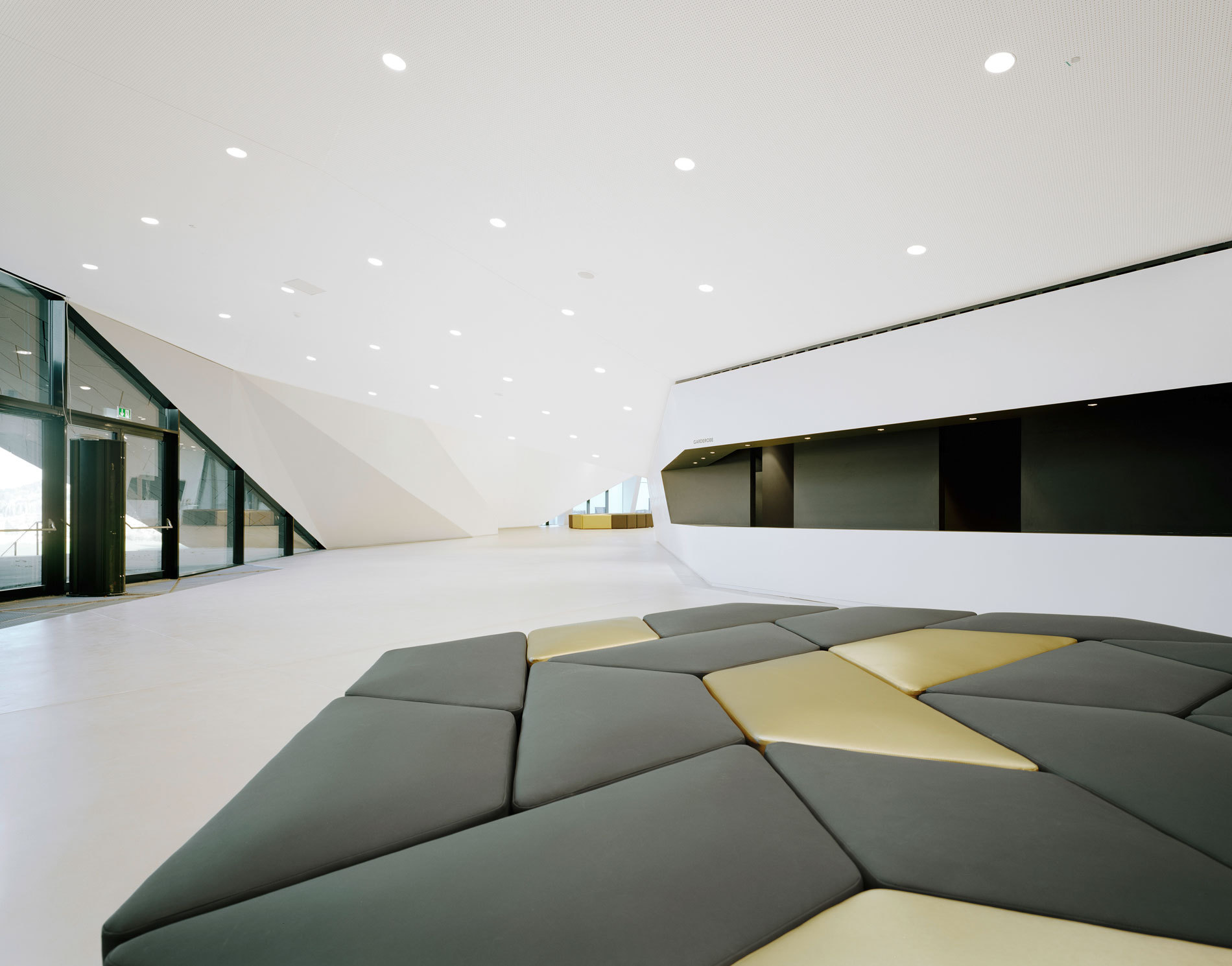
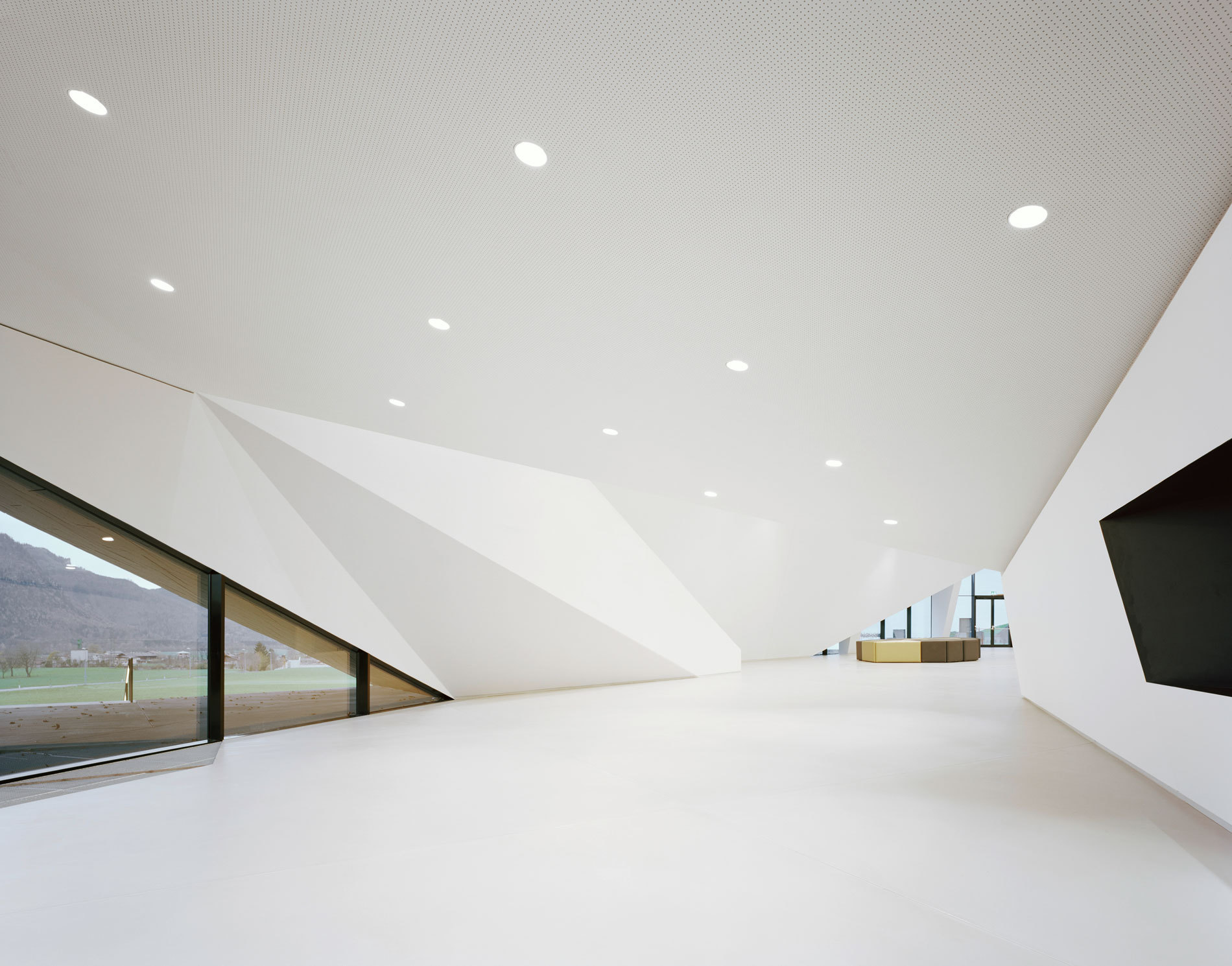
We shaped the movement from the outside
to the building’s inside, from the foyer into the
concert hall also acoustically,
by producing a crossover coreography. MJ
The concert space resembles a sounding
box in total quietness, where one only waits
for a first impulse to make it resound. RD
